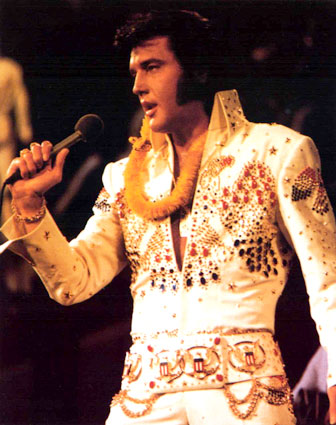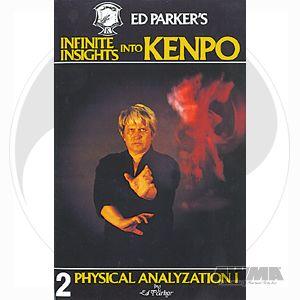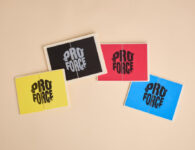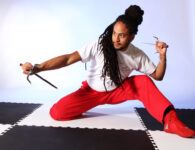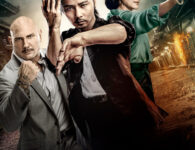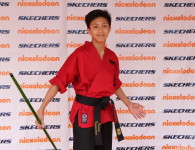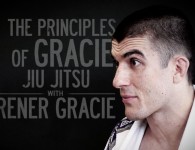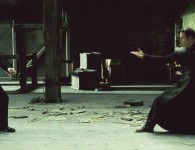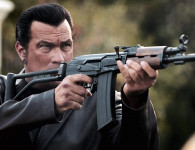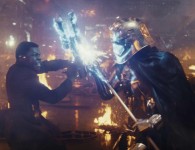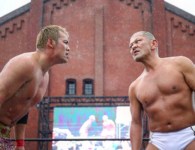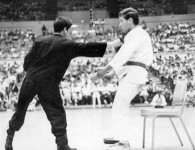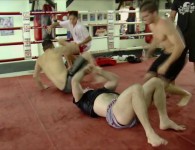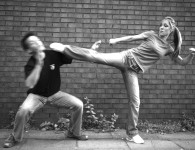January is The King’s birth month. The 8th would have been Elvis Presley’s 81st birthday if the music and film legend were still alive (or it actually was his 81st birthday if you’re a fan of the classic conspiracy theory about him faking his death and still walking amongst us). To celebrate the occasion in Asian World of Martial Arts-style, let’s take a look back at Presley’s relationship with kenpo master Ed Parker.
Elvis was a both a fan and a student of martial arts for most of his adult life and Parker, aka “Mr. Karate,” was not his only instructor. Nor was he the first. Presley originally developed a taste for karate thanks to the teachings of a man named Juergen Seidel while he was stationed in Germany as part of his army service. But Parker was arguably the most influential sensei in the singer’s martial arts practice. He was also the most beloved.
Edmund Kealoha “Ed” Parker was only beginning to gain recognition as America’s preeminent kenpo expert when Elvis sought him out in 1960, but the singer was already a fan. “I was putting on a demonstration for a group of doctors at the Beverly Wilshire Health Club in 1960 when, unbeknownst to me, he had heard about it and was one of the spectators,” Parker said of their first meeting in the November 1985 issue of Black Belt Magazine. “After it was over, he came up to me and said ‘Uh, I don’t think you know me, but my name is Elvis Presley.’ I was very humbled. And he said ‘You’re very innovative.’ He said he studied the martial arts in Germany while in the army. He said ‘I can see you’re a rebel in your field. I am a rebel, just as you are.’”
It was the beginning of a beautiful friendship. “And so we became very close and I started to teach him at his home and sometimes late at my school. And when I say late, it was like two in the morning because he became a night person because he was bothered so much during the day. The thing I liked about him was he accepted the fact that you were an expert in what you did and was an attentive listener and learner. He didn’t go ‘yeah, I know, I know. You don’t have to show me that.’ None of that stuff.”
After the rigid instruction that Elvis had received in the army, Parker’s comparatively freewheeling vision was a revelation. “Elvis was truly fascinated with Parker’s flamboyant kenpo style, particularly its dynamic self-defense routines and the distinctive method in which Parker could teach them,” journalist John Corcoran wrote in The King and Karate: The Story Behind Elvis Presley’s Fascination with the Martial Arts from the March 1998 issue of Black Belt. “With new material to learn after an absence from training, it is no wonder that Presley’s obsession with his hobby was rejuvenated.”
Sometimes Parker provided a little too much freedom for Presley’s own good, though. When that happened, the sensei would occasionally recommend that he see other trainers. “I noticed that he needed challenges,” he told Black Belt in 1985. “If he didn’t have the challenges he started deviating from keeping his weight down or what have you. He had a mind of his own.”
According to an account by fellow Parker disciple Al Tracy, the first instructor that Parker recommended to Presley was a man named Hank Slomansky. A Chito-ryu master with a military background, Slomansky had a strict training style and exacting standards. Which made him the perfect choice when Elvis decided that he wanted to test for his black belt.
“Back then, in the ’50s and ’60s a Black Belt had true meaning. There was no such thing as a four – or 5-year-old black belt. Any instructor who trivialized the arts to that degree would have been laughed out of the country. Judo had established the minimum age of 16 for black belts, and even then you could search a long time without finding a 16-year-old judo black belt. And so there was nothing else for it — Elvis Presley was going to have to earn his black belt,” Tracy write in Was Elvis Really a Black Belt?
“His instructors were understandably reluctant to promote him to that level. None of them had forgotten the derision piled on instructor-author Bruce Tegner when he presented a black belt to Ricky Nelson. Nobody believed for a minute that the pop singer deserved it. The solution: send Elvis to Hank Slomanski. If he survived, he’d have proved he qualified.”
It was tough initiation, but Elvis did survive. After six weeks of intense training and testing, Slomanski sent the star back to his sensei with the following evaluation: “The kid ain’t pretty, but he’s tough and he’s a Black Belt.”
As John Corcoran reports in his Black Belt feature, Parker went on to promote Elvis a number of times in the early ‘70s. “I truly felt that he had earned it,” Parker said in defense of The King’s rapidly elevating rank. “It wasn’t an honorary thing. What degree he was doesn’t really matter. After you die, what degree of death are you? Just leave it at this: He was a good black belt by any standards.”
Around that time, Parker also suggested that Elvis train with Master Kang Rhee, who became his primary instructor for the next four years. “I was more than flattered,” Kang Rhee wrote of the recommendation. “I was overwhelmed.” Presley was awarded a 7th Degree Black Belt under the instructor in 1973 and his 8th Degree the following year. The pair also worked together to on a karate documentary called New Gladiators. Although the film was never finished, some footage from the project can be found below.
https://youtu.be/odP1e37lbXA
Presley was fond of Kang Rhee, and even bestowed some of his famous generosity upon him in the form of a custom Cadillac, but Parker was never far from his practice or his affections, either. Elvis continued to train with him until his untimely death in 1977. Mr. Karate also became a part of his inner circle, both as a sort of body guard and a father figure, during those final years. “I was a ‘protective companion.’” Parker explained to Black Belt. “And I say that because I was not an employee of his. And as a result, he talked to me like he would his father. He told me his woes. He said ‘I feel like you’re a second daddy to me.’”
As a show of his admiration, Elvis affixed the emblem of Parker’s organization, the International Kenpo Karate Association, to his guitar (you can sometimes catch a glimpse of it in concerts footage and photos), and showered his second daddy with gifts. Like Kang Rhee, he also received a Cadillac from his devoted student, but there was one present he valued above all others: a custom American Eagle cape and belt that the singer had commissioned for his Aloha from Hawaii concert in 1973. Parker kept the outfit in a glass case in his home in Pasadena until his own death in 1990.
For more information on Ed Parker, check out or selection of books both on and by the master here.
– Sarah Kurchak

